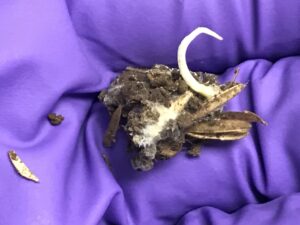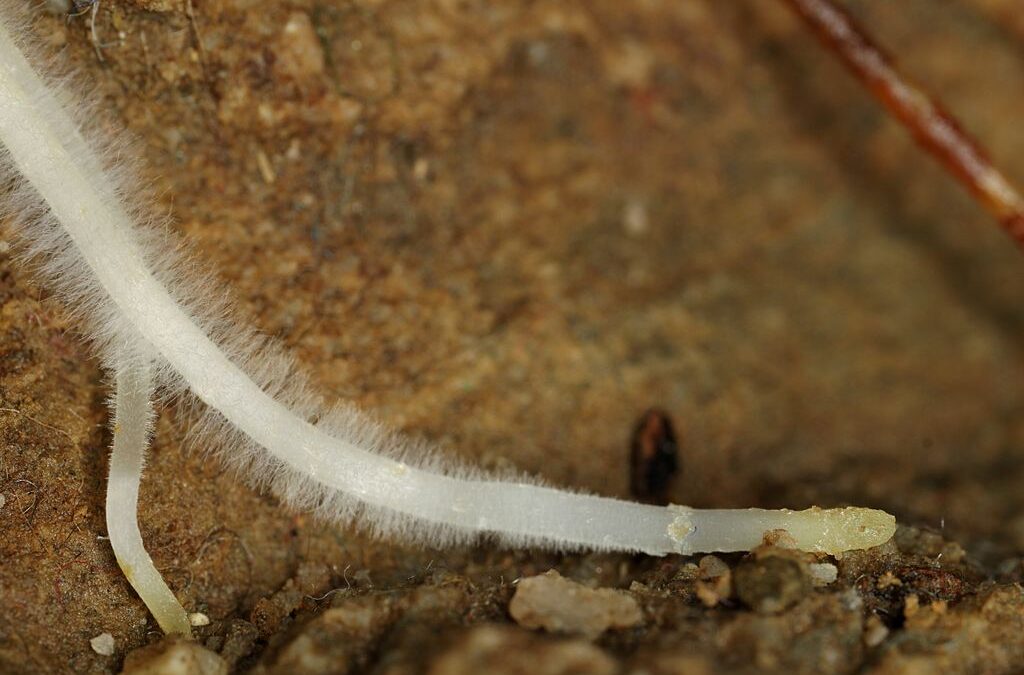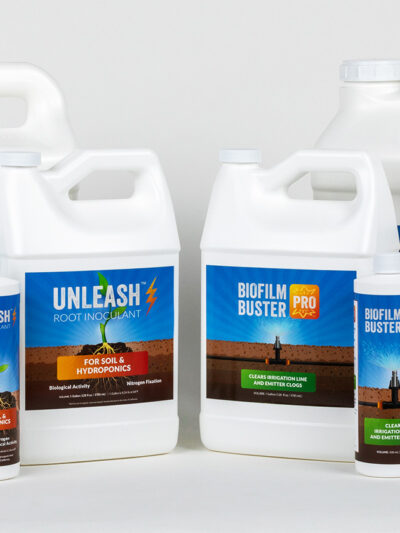Every grower understands the direct connection between the growing environment and the health of a plant. They know that a healthy growing environment is necessary for achieving optimal plant growth, regardless of what plants you’re growing.
The healthiest plants are the plants with the strongest root systems. A strong root system enables a plant to more effectively pull nutrients from the soil and fight off root pathogens that may infect and weaken the root. Experienced growers know that one of the “secret ingredients” that contribute to a healthy plant root system is Mycorrhizae.
In keeping with our goal to be a resource for the Cannabis community, the Unleash Organics’ science team created this post to help new (and experienced) growers understand why Mycorrhizae (and its relationship with beneficial bacteria) is so integral to the growth of strong and healthy plants. Enjoy!
What is Mycorrhizae?
Mycorrhizae are symbiotic fungi that colonize plant roots, conferring several advantages to the plant. Advantages include: (1) extending the root system such that a larger volume of soil can be accessed for plant nutrients and water; (2) forming a protective barrier around the roots, making it more difficult for root pathogens to infect the plant; (3) mitigating the plant stress response using multiple mechanisms. [These mechanisms are] Mycorrhizae are broadly grouped into two categories: the arbuscular mycorrhizae (AM), which penetrate into the plant root cells, where the AM and plant can exchange materials; and the ectomycorrhiza (ECM), which form a sheath called a “Hartig net” around the plant roots, where materials are exchanged.
Before either type of mycorrhizae can colonize plant roots, the immediate environment surrounding the plant roots – called the rhizosphere – needs to be able to support the colonization process. A specialized group of bacteria – called mycorrhization helper bacteria (MHB) – are central to this process. While MHB are essential for the initial mycorrhizal colonization they can also be an important part of maintaining the mycorrhizal-plant root relationship, where a less successful colonization will find the mycorrhizae rapidly dying off and leaving the roots unprotected. MHB work on several levels to ensure mycorrhizal colonization, including:
Promotion of mycorrhizae spore germination – In sterile soils, spore germination is much lower than in soils inoculated with MHB. MHB produce specific metabolites that are believed to act as signals for germination.
Promotion of mycorrhizae fungal growth prior to root colonization – MHB play a key role by forming a rhizosphere environment that can support mycorrhizae growth and development on plant roots. MHB do this by providing sufficient nutrients that mycorrhizae need to colonize plant roots, and by breaking down and removing harmful material – such as antifungal compounds – that actively prevents mycorrhizal growth.
Promotion of the plant root’s ability to mycorrhizal colonization – Mycorrhizae cannot randomly colonize any part of the plant root that they encounter. Instead they preferentially grow on “short” or “fine” root hairs – newer root growth which has a softer cell wall that the mycorrhizae can penetrate. The ability of MHB to help promote new root growth is well-documented. MHB can also “soften” older roots using a variety of enzymes, which can allow for mycorrhizal colonization on older root tissue.
Promotion of the root-mycorrhizae recognition process – The root colonization process is complex, with both fungi and plants producing a variety of chemical signals such as phytohormones, organic acids, sugars and adhesins during the initiation of colonization. MHB can also produce these signaling compounds, and can alter existing compounds that may interfere with the colonization process.

Germinating seed covered in mycorrhizal growth from Unleash-inoculated soil.
How Does a Root Inoculant Help With Mycorrhizae Growth?
Unleash Root Inoculant can play a key role in helping to establish healthy mycorrhizae growth on plant roots using any of the mechanisms listed above. In fact, one test we use to ensure full activity on every batch of Unleash we make is to inoculate the Unleash into healthy soil, and chart the growth of mycorrhizae compared to uninoculated soil. With Unleash, we see rapid mycorrhizal growth within 72 hours which persists to the end of the two-week test, while with uninoculated soil we find spotty growth which rapidly dies back. In the above picture you can see a germinating seed covered with mycorrhizae from Unleash-inoculated soil.
Questions? If you want any further explanation on anything in this post, please don’t hesitate to contact us at +1-888-285.7665 or info@unleashorganics.com
Want to find out more about our root inoculant, Unleash? Check out the product page and let us know if you have any questions about the product or how to incorporate it into your current growing environment.


